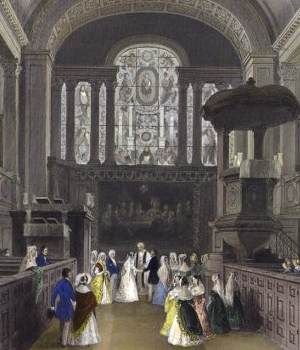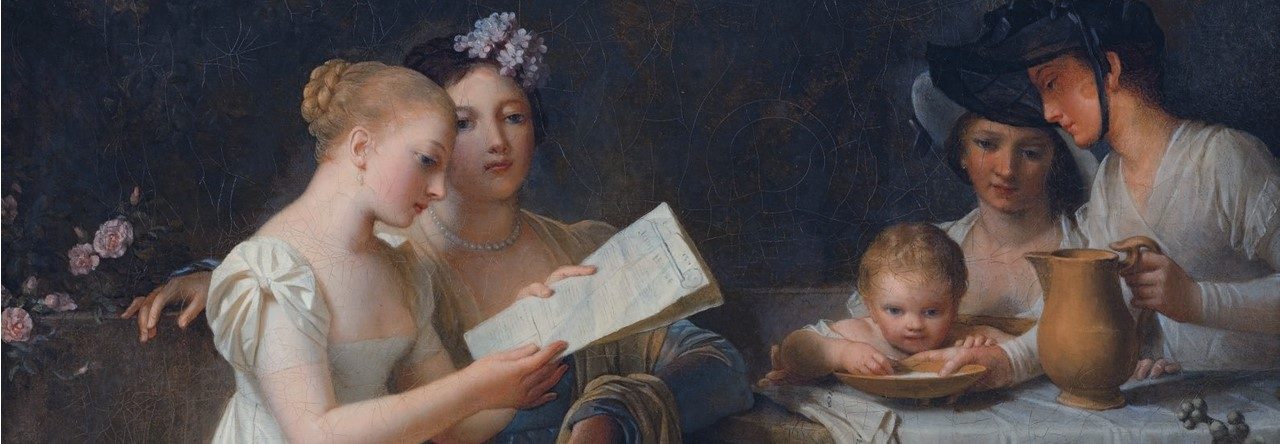 Honoured Sir
Honoured Sir
The wedding between Miss Caroline Thrushnet and Mr Lewis Colbrooke, which you sent this correspondent to report on for The Teatime Tattler proved to be rather more exciting than expected.
When your humble servant arrived, the groom waited in St George’s. Fashionably dressed and spectacularly handsome, he looked every inch the picture of maiden’s dream.
Many would say Miss Thrushnet was to be envied. She was to marry wealth, good looks, and even a title, after the wheels of the law completed their grinding and declared his missing cousin dead and Mr Colbrooke the Earl of Fenchurch.
Appearances can be deceptive, however. Mr Colbrooke has a dark reputation, and this correspondent has heard a number of stories that no wise paper would print while the gentleman is alive to exact retribution.
Suffice it to say that his predilections and vices make him no match for an innocent lady. And it appeared to all in the church that Miss Thrushnet agreed, for when she arrived, not a minute past the appointed hour, she was as white as the lilies she carried, and as grave as if she attended her own funeral rather than what some have called the happiest day of a woman’s life.
She took her place beside the groom, who took her hand, and not gently. He spoke out boldly, loudly enough that those in the front of the small crowd of attendees could hear him, urging the Reverend Chilhurst not to waste time, but to splice him to the damned chit, as he had other business to transact that afternoon and a wife’s maidenhead to breach before he could attend to it.
Miss Thrushnet could get no paler, but she grayed at those words, Sir. She grayed. But when the Reverend gentleman expressed horror at Mr Colbrooke’s coarseness and counselled Miss Thrushnet not to proceed, she said, so quietly that her voice could barely be heard, “I have no choice. Do it quickly, please.”
Whether that plea was to the Reverend or to Mr Colbrooke, who can tell?
And so the wedding began, and proceeded without a hitch until the Reverend spoke to the congregation, almost, it seemed, begged the congregation. “If any of you know cause or just impediment why these two persons should not be joined together in Holy Matrimony, ye are to declare it.”
He fell silent and waited. Mr Colbrooke cursed him with foul words, calling on him to proceed, but Miss Thrushnet turned to the crowd, and if ever eyes pleaded, hers did.
Honoured Sir, her pleas were answered.
The door to the church crashed back, and a large angry man shouldered his way past the ushers, shouting, “Stop the wedding!”
He wore the clothing of a gentleman, but beat those who would have prevented his progress with a walking stick carved in barbaric flourishes. One side of his face was almost a twin to that of the groom, but hard where Mr Colbrooke’s had softened with riotous living. The other was carved as ornately as his stick, in whorls and dots of black ink etched into his skin. He was half English, half savage, and wholly furious. Nothing and no one stood between him and the wedding party; or at least not for long.
A soft sigh turned our attention back to the unhappy couple. The bride had fainted, and who can wonder.
Lest you and your readers be bored with the long and loud discussion that ensued, suffice it to say that Magnus Colbrooke, the lost Earl of Fenchurch, had returned to claim Miss Thrushnet to whom, he said, he had been betrothed before he left for the other ends of the earth.
You will not be surprised that Mr Colbrooke refused to recognise him. But Miss Thrushnet, when she recovered consciousness, said that she had known him immediately, and as witness to that fact would marry him this very day, if the Reverend would conduct the ceremony.
He would not. The name on the license must be changed. But if Miss Thrushnet and Fenchurch are not husband and wife before the week is out, it will not be for want of action on the part of the earl.
Meanwhile, Mr Colbrooke left in a rage. This correspondent ventures to suggest that his cousin refrains from going out on a dark night unaccompanied, although if ever a gentleman looks as if he can take care of himself against criminals and bully boys, the returned Earl of Fenchurch is that man.
Where will it end, Honoured Sir? This correspondent will watch with great interest, of that you can be sure.
![]()
 This vignette precedes the events in Magnus and the Christmas Angel by six months. Magnus and the Christmas Angel is a short story that tells about the final reconciliation of Magnus and his wife, after months of misunderstanding.
This vignette precedes the events in Magnus and the Christmas Angel by six months. Magnus and the Christmas Angel is a short story that tells about the final reconciliation of Magnus and his wife, after months of misunderstanding.
Jude Knight is giving away Magnus and other stories to new subscribers to her newsletter (four of which are only available by gift from Jude). Jude’s newsletter goes out several times a year, and with news about new releases and other writing related events and activities. And Jude always includes a link to short stories, collections of character interviews, or other ebooks that are not available to the general public.
To subscribe, go to http://judeknightauthor.com and fill out the subscriber box in the right margin.
You can read more about Jude Knight and her books on her website, or on her author page here on the Belles site.
